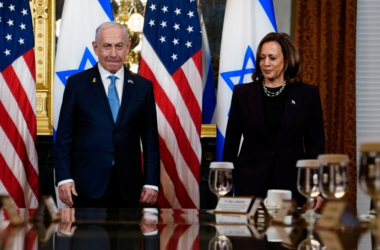The U.S. Senate is poised to make critical decisions next week, with a scheduled vote on military aid for Ukraine and Israel. The deliberations, led by Senate Majority Leader Chuck Schumer, have gained significance as negotiations unfold around potential changes to U.S. border security policy. The funding for Ukraine and Israel, totaling $50 billion and $14 billion, respectively, hangs in the balance amid ongoing discussions regarding border security measures.
In response to the pressing matters at hand, Senate Majority Leader Chuck Schumer announced on Thursday that the Senate would postpone its holiday break, originally set to commence on Friday. The delay aims to provide negotiators with additional time to reach an agreement on the multifaceted issues at play, reinforcing Schumer’s acknowledgment of the global significance of their decisions. “So much hangs on our success,” Schumer emphasized, recognizing the world’s attention to the unfolding events.
President Joe Biden has been actively advocating for the passage of a supplemental aid package that encompasses $50 billion in new security assistance for Ukraine in its struggle against Russia. Additionally, the aid package includes $14 billion for Israel as it contends with the conflict against Hamas in Gaza. These financial allocations are pivotal for supporting the strategic interests and security objectives of both nations, reflecting the broader geopolitical dynamics in play.
Notably, the Senate’s decision on military aid for Ukraine and Israel is intertwined with negotiations over U.S. border security policy. Republicans, led by House Speaker Mike Johnson, have consistently insisted that their support for the aid packages is contingent on implementing new controls for the U.S.-Mexico border. This linkage has introduced a complex layer to the discussions, reflecting the intersection of foreign policy priorities and domestic security concerns.
Ukrainian President Volodymyr Zelenskiy, returning home after meetings in Washington, expressed optimism regarding the Senate’s actions. Zelenskiy conveyed his expectation that Congress would soon pass the required measures, citing important advice and agreements received during his visit. In his video address, Zelenskiy underscored the significance of Congress approving key decisions for Ukraine’s ongoing efforts against external threats.
While Senate negotiators have made progress, challenges persist, as outlined by Senator Tom Cotton. Concerns have been raised about the substantial gaps in the negotiations, with Cotton highlighting that Democrats have not put their proposals in writing. A critical demand from Republicans involves curbing President Biden’s “parole” authority, a point that has yet to be addressed in the ongoing talks.
As the Senate prepares for the crucial vote on Ukraine and Israel funding, coupled with border security considerations, the decisions made in the coming week will reverberate globally. The intertwined nature of international aid and domestic policy negotiations underscores the complexities faced by lawmakers. The outcome will not only impact the geopolitical landscape but also shape the Biden administration’s approach to key foreign policy priorities and its ability to navigate bipartisan cooperation on multifaceted issues.








